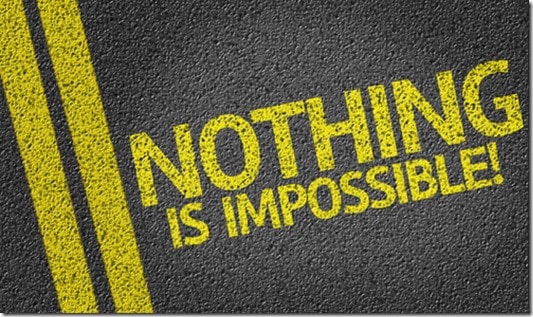Originally posted on October 31, 2017 @ 12:59 PM
The Trajectory of Zero Vision

Whenever we engage in strategic thinking, planning and management we engage in a learning process (Michael. Learning to Plan and Planning to Learn). Not all strategic goals are realized, the randomness of living in an unpredictable environment most often changes so that goals become outdated or need adjusting. The ability to adapt and learn through the non-achievement of goals is what effective leadership is about. The world doesn’t fall apart because organisational goals are not realized. The leader doesn’t expect ALL goals will be realized – markets change, people make mistakes, leaders are not infallible, closed systems can’t adapt and the economy can be erratic.
The capability to work within changing elements is called ‘bricolage’. Claude Levi Strauss in The Savage Mind (https://monoskop.org/images/9/91/Levi-Strauss_Claude_The_Savage_Mind.pdf ) shows that the Bricoleur uses whatever is at hand to turn old plans locked in concrete into a new and better outcome. (Interestingly, Levi Strauss proposes that the opposite of the Bricoleur is the Engineer). When there is turbulence in the workplace and unexpected events occur, the last thing an organization needs is ‘plans locked in concrete’. The time will come when the old plan won’t match the new conditions and without the capability to adapt, things no longer fit. We witness this lack of adaptability all the time with the demise of businesses that don’t adapt to the Market eg. Kodak, Nokia, Motorola, Microsoft and Blackberry to name a few. This is what the psychology of goals is about, understanding that all goals have a hidden trajectory.
As we look at the language of zero vision discourse we witness the affect of totalising language and setting absolutes on context. The entry of Safety into religious discourse (https://safetyrisk.net/the-religion-of-safety/) is the inevitable trajectory of a utopian perfectionist goal. Once the discourse is set to an absolute there is a fixity and permanence embedded in the goal and all that goes with it. In the end perfectionist goals emerge as religious and mythical discourse.
The language of perfectionism is apocalyptical (a fixation on end), it proposes that a day will come when we will achieve zero. Unlike Dekker who proposes the end of Heaven (https://www.ioshmagazine.com/article/end-heaven-disaster-and-suffering-scientific-age) Zero proposes a new heaven on earth where there will be no mistakes, no risk and no harm (and subsequently no learning). Apparently this new heaven is the scientific technical world where ‘technique’ as ideology dispels the dystopian world of fallibility. Unfortunately for ‘Technique’ Postman (Technopoly), Ellul (The Technological Society) and Turkel (Alone Together) deconstruct such mythology. Setting infallible goals for fallible people is nothing short of crazy.
The big banner of ‘we believe’ at the World Congress on Safety has such apocalyptic significance (https://safetyrisk.net/no-evidence-for-the-religion-of-zero/). I can hear echoes in the background ‘we believe the impossible’, the true descriptor of faith. So, as Safety hurtles at light speed to ‘magic’, utopia and zero (without the critical equipment to deconstruct its own religiosity) it doesn’t dispel the idea of heaven but in fact amplifies it! It doesn’t dispel heaven but makes systems, technique and science into new myths as the vision for infallibility. This is the trajectory of zero.
If one reads apocalyptic literature such as Revelation 21, the parallels with zero vision become significant. Zero is the ‘wish’ for a new heaven on earth so neatly represented graphically by the Bradley Curve. The Bradley Curve starts with a position from Original Sin (natural instincts to be unsafe) to zero, the state of reaching no harm (if one adopts Du Pont systems). Unfortunately for Du Pont, there is no Heaven (http://www.houstonchronicle.com/news/houston-texas/houston/article/DuPont-s-safety-record-has-slipped-in-recent-years-5938564.php) and humans and their systems can never become infallible.



Do you have any thoughts? Please share them below